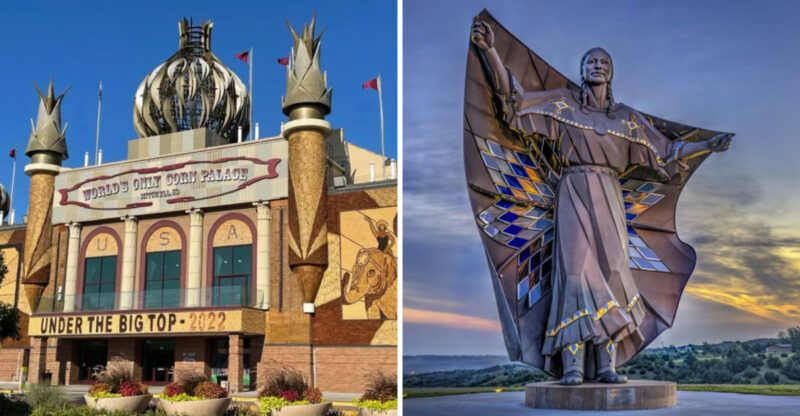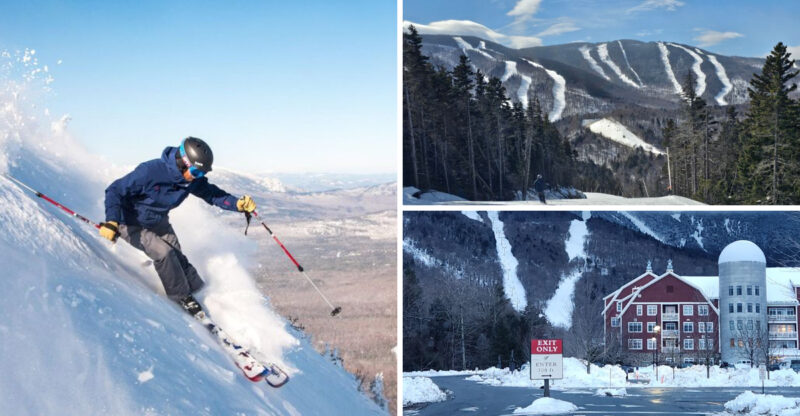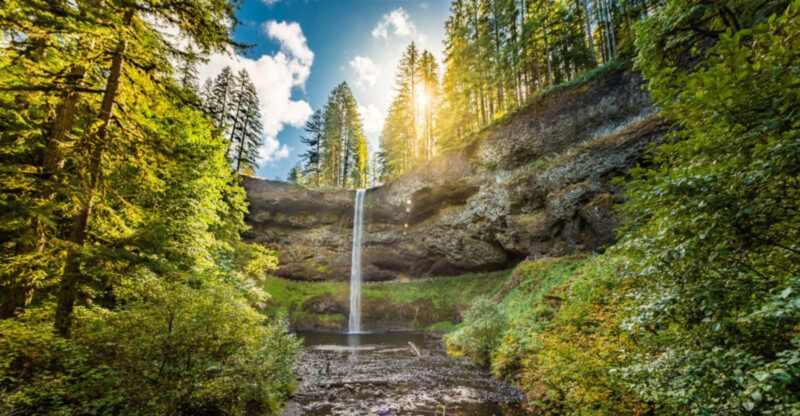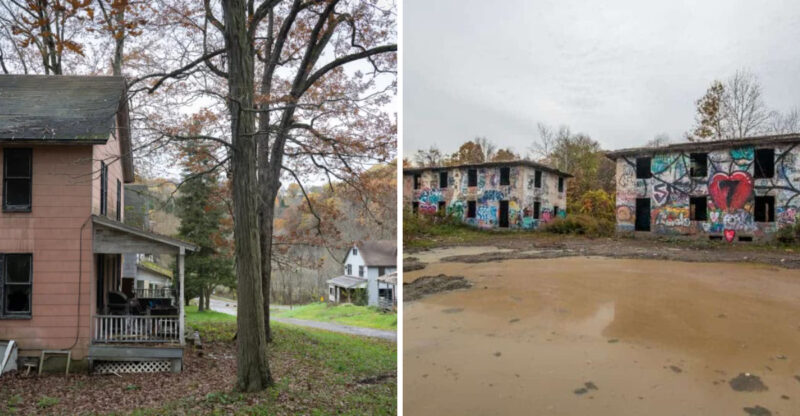16 Massachusetts Abandoned Parks That Once Echoed With Laughter
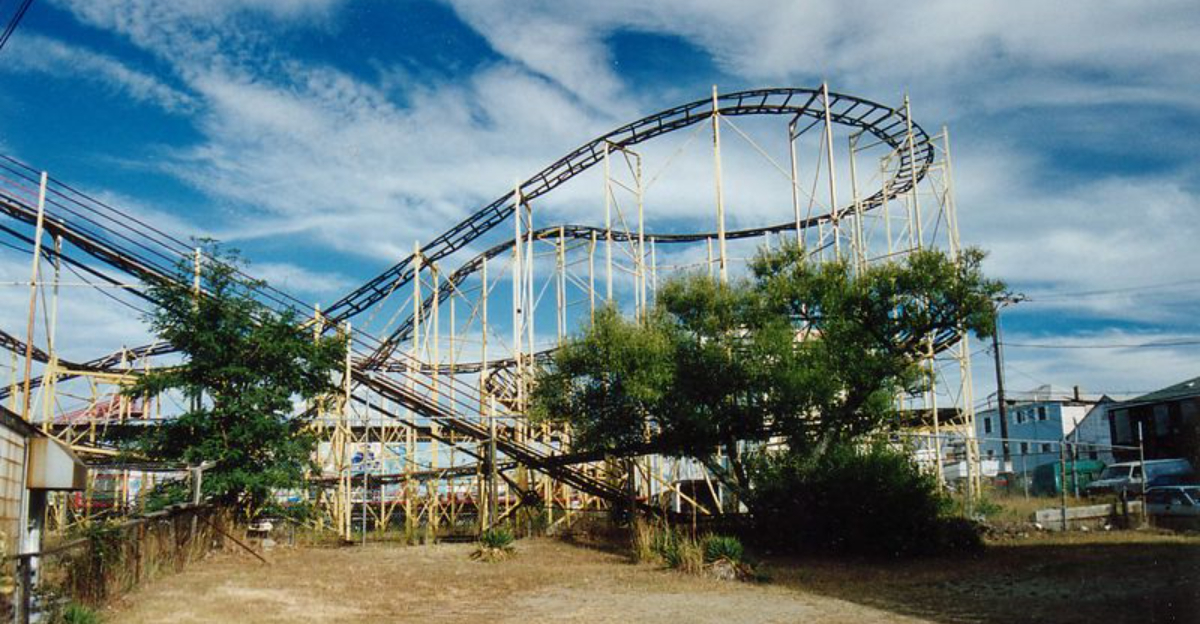
Massachusetts once buzzed with the sounds of roller coasters, carousel music, and children’s laughter at dozens of amusement parks scattered across the state. These beloved destinations brought families together for generations, creating memories that still linger today.
Sadly, many of these parks have closed their gates forever, leaving behind only faded photographs and nostalgic stories. Exploring their histories offers a glimpse into simpler times when a day at the park was the highlight of summer.
1. Whalom Park, Lunenburg
For over a century, this beloved destination welcomed visitors seeking thrills and family fun. The famous Flyer Comet wooden roller coaster became an icon, drawing crowds from across New England.
Operating from 1893 to 2000, the park weathered economic changes and shifting entertainment trends. Eventually, declining attendance and rising costs forced its closure, ending an era of simple pleasures and summer traditions.
2. Lincoln Park, North Dartmouth
Generations of families made annual pilgrimages to this seaside entertainment spot. The Comet roller coaster and hand-carved carousel provided timeless excitement that never grew old.
From 1894 until 1987, the park served as a gathering place for communities across southeastern Massachusetts. After shutting down, the property sat empty for decades until the Comet was finally dismantled in 2012, marking the end of a cherished chapter.
3. Paragon Park, Hull
Nestled along the Atlantic coast, this seaside attraction combined beach access with carnival thrills. The Giant Coaster towered over the shoreline, visible from miles away.
Between 1905 and 1984, countless summer days were spent riding attractions and enjoying ocean breezes. Financial struggles and changing ownership eventually led to its demise, and the land was redeveloped into residential and commercial properties that replaced the midway.
4. Mountain Park, Holyoke
Tucked against the slopes of Mount Tom, this natural setting provided a scenic backdrop for family entertainment. Picnic groves mixed with mechanical rides created a unique atmosphere that blended nature with novelty.
Running from 1894 to 1987, the park offered roller skating, carousel rides, and shaded pathways perfect for leisurely strolls. Competition from larger theme parks and maintenance challenges ultimately closed this mountain retreat forever.
5. Norumbega Park, Auburndale
Situated along the Charles River, this elegant venue attracted visitors seeking both refined entertainment and carnival excitement. The grand dance hall hosted big band performances while midway games entertained younger crowds.
From 1897 to 1963, the park evolved with changing tastes, adapting to new entertainment trends. Eventually, television and suburban recreation centers drew audiences away, leading to its quiet closure and transformation into office parks.
6. Pleasure Island, Wakefield
Dubbed the “Disneyland of the East,” this imaginative wonderland featured themed attractions that sparked children’s creativity. Moby Dick’s whale ride and the Old Chisholm Trail transported visitors to different worlds without leaving Massachusetts.
Operating only from 1959 to 1969, the park’s ambitious vision couldn’t sustain itself financially. Despite its brief existence, those who visited still remember its unique charm and innovative approach to family entertainment that felt ahead of its time.
7. Acushnet Park, New Bedford
Nature proved a formidable adversary for this coastal entertainment venue. Hurricanes in 1938, 1944, and 1954 repeatedly battered the structures, each storm inflicting more damage.
Between 1916 and 1954, the park provided waterfront recreation for working-class families seeking affordable summer escapes. After the third devastating hurricane, owners decided rebuilding was no longer financially viable, and the park closed permanently, leaving only foundations and memories behind.
8. Jolly Cholly’s Funland, North Attleborough
This family-friendly attraction catered to younger visitors with gentler rides and games. The playful name reflected its lighthearted approach to entertainment, focusing on simple pleasures rather than extreme thrills.
From 1950 to 1979, the park served local communities looking for affordable weekend outings. As larger theme parks emerged and entertainment options expanded, smaller venues like this struggled to compete, eventually closing as consumer preferences shifted toward grander experiences.
9. King’s Castle Land, Whitman
Medieval themes transported visitors to a storybook kingdom where knights and castles sparked imagination. Castle facades and themed decorations created an immersive environment for young adventurers.
Operating from 1964 to 1994, this modest park carved out a niche with its distinctive theming. Three decades of operation couldn’t overcome changing entertainment landscapes and rising operational costs, leading to closure as families increasingly chose video games and home entertainment over traditional amusement parks.
10. Lakeview Park, Dracut
Lakeside recreation defined this long-running attraction that combined swimming, boating, and mechanical rides. The waterfront location provided natural cooling on hot summer days when air conditioning was rare.
From 1895 to 1970, generations returned year after year for affordable family entertainment. Seventy-five years of operation ended as automobiles made distant destinations accessible and newer parks offered more modern attractions that older venues couldn’t match financially.
11. Pirate’s Fun Park, Salisbury Beach
Pirate themes and beachfront location made this a natural summer destination. Swashbuckling decorations and nautical attractions capitalized on the coastal setting and children’s love of adventure stories.
Between 1979 and 2004, the park entertained beachgoers looking for entertainment beyond sand and surf. Twenty-five years of operation ended as maintenance costs rose and competition from indoor entertainment centers drew families away from traditional outdoor amusement venues year-round.
12. Wonderland Amusement Park, Revere
Ambitious plans and grand visions characterized this short-lived venture. Elaborate entrance gates and imported attractions promised world-class entertainment, but reality proved more challenging than dreams.
Operating only from 1906 to 1911, financial troubles plagued the park from the start. Just five years after opening, mounting debts forced closure, making it one of Massachusetts’ briefest amusement park experiments and a cautionary tale about overambitious entertainment ventures.
13. Lincoln Park, Worcester
In the heart of Worcester, Lincoln Park was a beacon of entertainment in the late 19th century. Known for its prolific roller coaster and exuberant events, the park drew crowds from all over during its opereation from 1890s to around 1907. However, as the 20th century dawned, the park’s charm began to fade.
Despite attempts to rejuvenate it, Lincoln Park struggled to keep pace with modern attractions. Ultimately, it closed its gates, leaving behind memories of laughter and joy. Today, remnants of its past remain hidden under overgrown greenery, whispering tales of yesteryears.
14. Merrimack Park, Methuen
Merrimack Park once stood as a vibrant gathering place in Methuen, with its iconic carousel and lively fairs. Families flocked to the park for joyous afternoons filled with music and merriment between the years 1898–1938.
As years passed, competition and financial woes began to weigh heavily on the park. Despite efforts to revive its former glory, the park succumbed to the inevitable. Today, the carousel stands eerily still, enveloped by nature.
15. Shaheen’s Fun-O-Rama, Salisbury Beach
Shaheen’s Fun-O-Rama operated from 1954–1990 and was the heart of Salisbury Beach, offering endless fun with its bustling arcades and exciting rides. Known for its vibrant atmosphere, it was a favorite among locals and tourists alike.
As time progressed, newer attractions overshadowed this beloved park. Despite its efforts to adapt, Fun-O-Rama couldn’t keep up with the changing times. Broken game machines and faded neon lights tell tales of a vibrant past, cherished by those who remember.
16. White City, Shrewsbury
White City, a marvel of the early 20th century (1905–1960 to be exact), dazzled visitors with its extravagant rides and lively entertainment. Its roller coasters and dance halls were the epitome of joy.
Now, the rusting coasters and silent pathways are remnants of a glorious era, silently narrating stories of the laughter that once permeated the air. White City’s legacy lingers in the hearts of those who experienced its magic.

